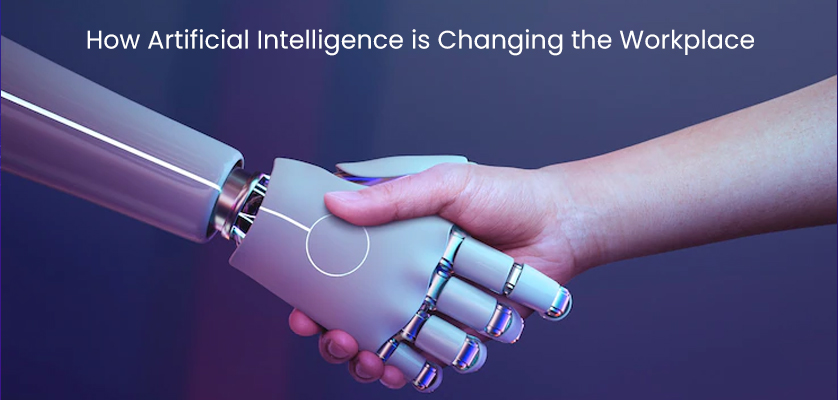Artificial Intelligence (AI) has been transforming various industries in recent years, and the workplace is no exception. From automating repetitive tasks to providing insights and decision support, AI is revolutionizing the way we work. As AI continues to evolve, it is essential to understand how it is changing the workplace and what this means for the future of work. In this blog, we will explore the ways in which AI is impacting the workplace, including its potential benefits and challenges, and what we can expect to see in the future.
The Role of Artificial Intelligence in Automating Tasks
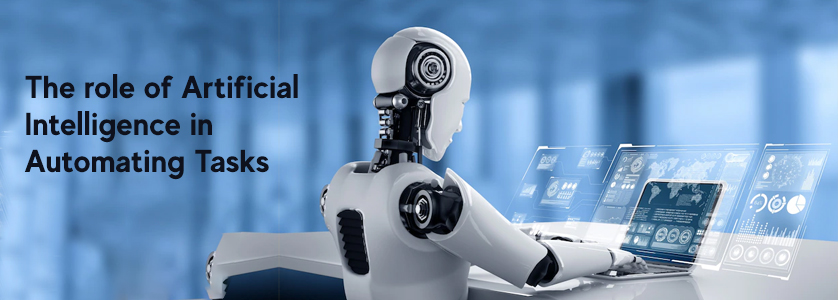
AI is revolutionizing the way work is done through automation. AI uses machine learning algorithms and natural language processing to analyze large amounts of data, identify patterns, and make predictions, enabling businesses to streamline operations and increase productivity. AI is being used to automate various tasks in industries such as customer service and finance. For example, AI-powered chatbots can handle customer inquiries 24/7, freeing up human agents to focus on more strategic tasks. In finance, AI is used to automate the process of reviewing financial reports and detecting potential fraud.
The Use of Artificial Intelligence in Decision-Making
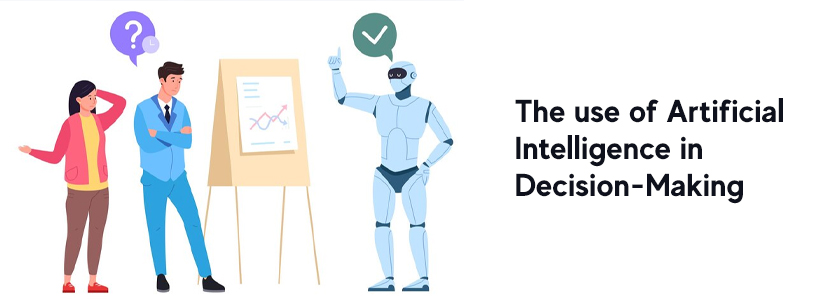
Artificial Intelligence (AI) is changing the way decisions are made by analyzing large amounts of data to identify patterns and relationships. This data-driven approach leads to improved outcomes and better decision-making. AI is used in various industries such as marketing, finance, and HR for decision support. AI-powered marketing algorithms can analyze consumer data to find the most effective strategies, while in finance AI is used to evaluate investment opportunities. In HR, AI is used to analyze job applicants and predict their fit and success in a role. The use of AI in decision-making brings increased accuracy and efficiency, but it’s important to consider the potential biases and ensure ethical use.
The Impact of Artificial Intelligence on Job Markets and Employment
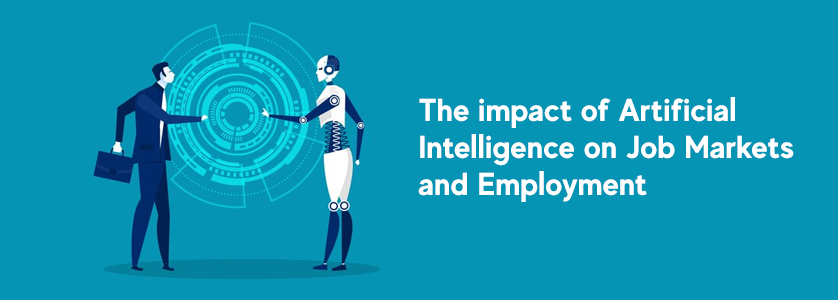
AI’s impact on job markets and employment is complex. It’s automating certain tasks, leading to job losses in some industries, but creating new job opportunities in areas like data analysis and AI development. The impact varies by industry, and it’s difficult to predict the long-term effects. To ensure a fair future, workers need to continually upskill and adapt to new technologies. Companies and governments must also provide training and support for workers affected by automation. A collaborative effort between individuals, companies, and governments is necessary for a positive outcome.
The Ethical Considerations of Using Artificial Intelligence in the Workplace
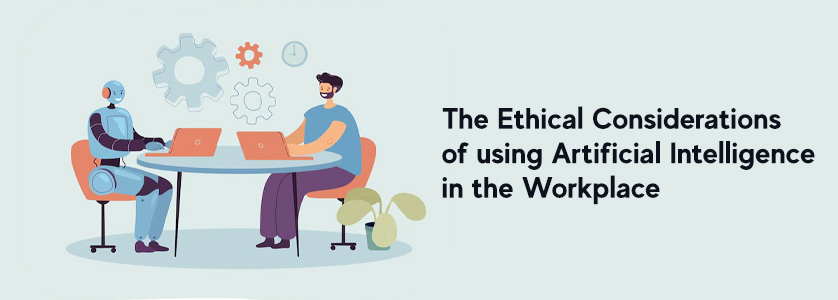
The ethical use of AI in the workplace raises concerns about privacy, bias, and accountability. AI systems processing personal data may compromise privacy rights. Bias can result in unfair outcomes, so reducing it in AI systems is important. Responsibility for AI-made decisions should be clear to ensure accountability in case of errors or harm. Companies and policymakers must consider these ethical implications and ensure that AI is used responsibly and ethically. This includes privacy protection, reducing bias, and establishing accountability and transparency.
The Role of Employees in Managing and Working With Artificial Intelligence
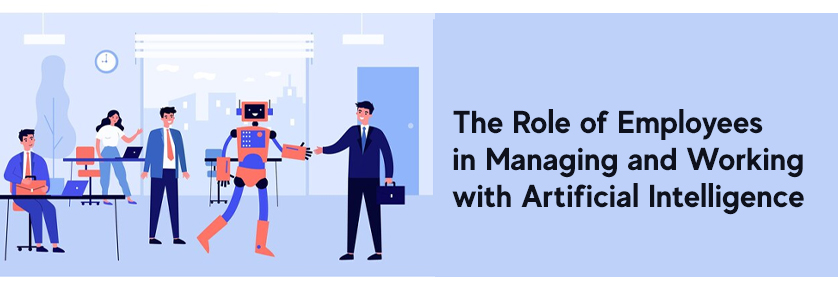
Artificial Intelligence (AI) is changing the way work is done and employees have an important role in managing and utilizing AI in the workplace. To effectively work with AI, employees need to learn how to use AI tools and understand their limitations. They should also be trained in ethical considerations and be able to identify potential biases and privacy concerns. Collaborating with AI systems and feeding them with relevant data is also crucial for maximizing the benefits of AI. As AI evolves, employees must adapt and acquire new skills. By being proactive, employees can play a crucial role in using AI responsibly and driving positive outcomes.
The Future of Work and the Increasing Importance of Artificial Intelligence Literacy

Artificial Intelligence (AI) is rapidly changing the future of work and it is becoming increasingly important for workers to have AI literacy. As AI continues to permeate various industries, it is essential for workers to understand how AI works, its limitations, and how to work with AI systems effectively. AI literacy will help workers make informed decisions about the use of AI in their work and understand the impact it may have on their jobs and the job market as a whole. Developing AI literacy will also enable workers to take advantage of the opportunities that AI presents and be prepared for any challenges that may arise.
Conclusion
In conclusion, the advancement of Artificial Intelligence has brought about significant changes in the workplace. AI is automating manual tasks, supporting decision-making, and transforming the job market. As AI continues to evolve, it is becoming more important for employees to develop AI literacy and for organizations to consider the ethical implications of using AI. The integration of AI in the workplace has the potential to greatly improve efficiency and productivity, but it is important to ensure that the benefits are shared equitably. Overall, the integration of AI in the workplace is an ongoing process, and it is essential for individuals and organizations to stay informed and adapt to these changes.
Read More:- Eliminating Cyber Attacks for Your Business: 7 Essential Steps

